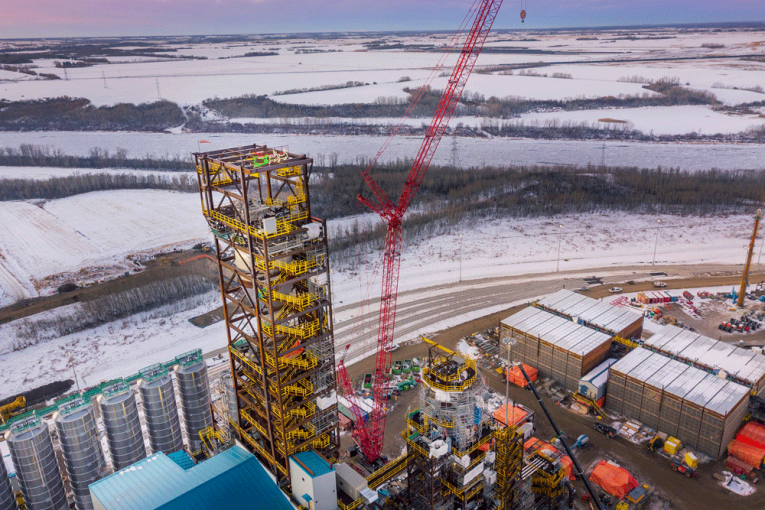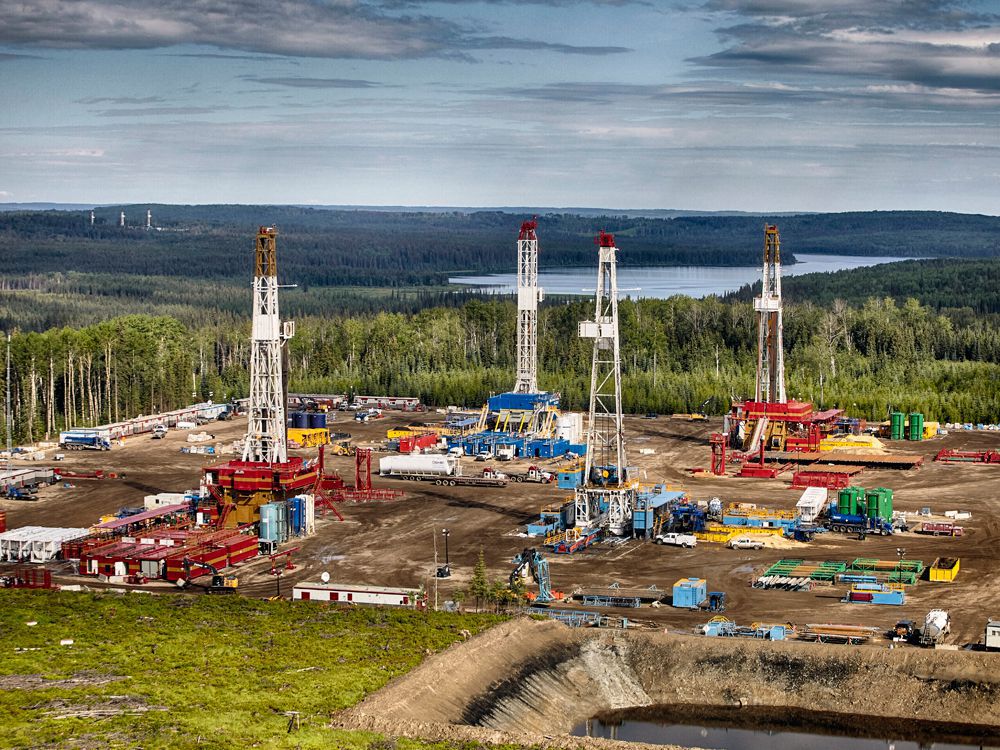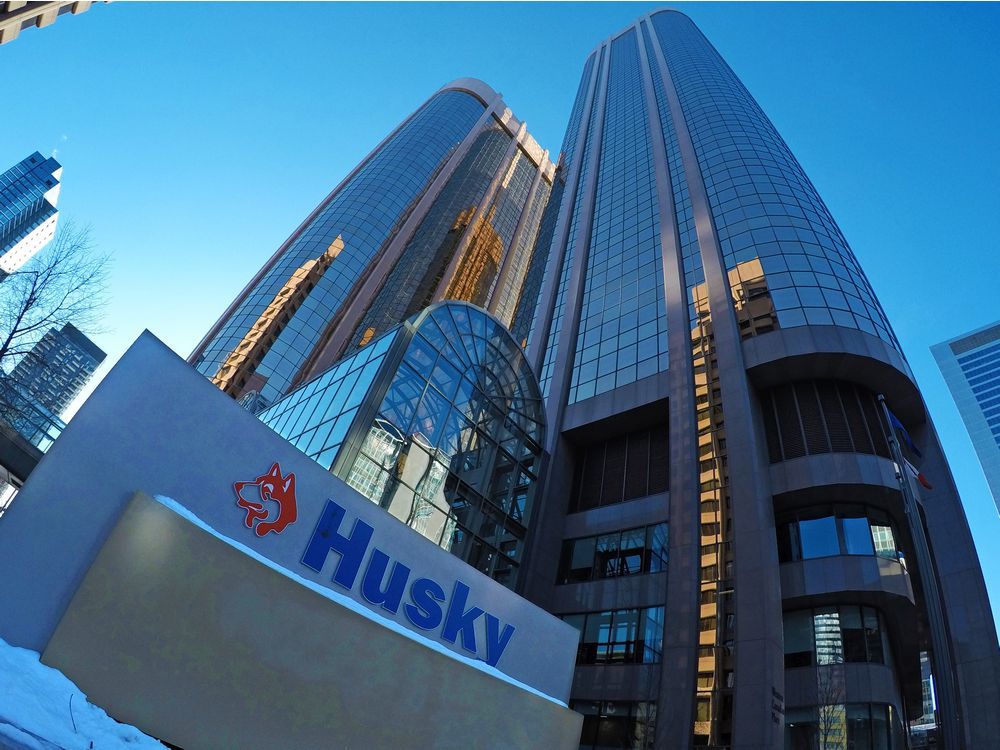
While a bone-chilling deep freeze settled over Alberta, two blockbuster deals unveiled within just a couple of hours on Wednesday turned up the temperature on M&A activity in the province’s energy sector.
Brookfield Infrastructure Partners LP kick-started the action with an unsolicited
$13.5-billion takeover bid
for midstream company Inter Pipeline Ltd.
Later in the day, ARC Resources Ltd.
announced a friendly union
with Seven Generations Energy Ltd., pegging the enterprise value of the combined entity at $8.1 billion.
“It was crazy, it happened so fast,” said Rafi Tahmazian, a senior portfolio manager at Canoe Financial, which is an investor in both ARC Resources and Inter Pipeline.
“It’s going to feel a lot warmer today because of that.”
The twin announcements are continued evidence of consolidation sweeping through the Canadian energy sector.
But the deals are distinctly different.
At ARC and Seven Generations, the all-stock transaction follows the familiar path of petroleum producers seeking to gain size and scale during a period of turbulence.
Operating under the ARC banner, the combined company will have an array of assets in the Montney formation in northern Alberta and British Columbia. Once the deal is completed, ARC will produce more than 340,000 barrels of oil equivalent (boe) per day — making it the third-largest natural gas producer in the country.
ARC’s Terry Anderson will remain as chief executive, while Seven Generation’s CEO Marty Proctor will become vice-chair of the company. Hal Kvisle will remain as ARC’s board chair.
“The company will have resiliency to better withstand volatile and uncertain market conditions,” Anderson said on a conference call.
Under the transaction, Seven Generations investors will own 51 per cent of the company; ARC shareholders will have 49 per cent.
In an interview, Proctor called it “essentially a merger of equals” given the similar size of the two organizations, and said it’s in the best interests of shareholders to join forces.
“Early in the new year, we began the discussion in earnest, and it came at a time when our share price had recovered somewhat from the pandemic level. And it got to the point where both sides thought it could be a very attractive, accretive deal for all shareholders,” he said.
“I think size, scale, relevance do matter, and that was one of our conclusions.”

Investors appeared to agree.
Shares in Seven Generations rose almost six per cent to close at $8.48 on the Toronto Stock Exchange, while ARC Resources climbed five per cent to $7.78.
“What you have here today is a stronger, better entity with a really intriguing outlook for global investors,” said analyst Patrick O’Rourke at ATB Capital Markets.
It’s expected the merger will lead to costs being cut by about $110 million annually by 2022, which will likely lead to more job losses in Calgary. ARC has about 425 employees, while Seven Generations has 230 permanent and about 200 contractor positions.
The pursuit of Inter Pipeline is a different beast.
Aside from being a hostile bid for a midstream company, the Brookfield offer would bring “mainstream capital into the Canadian energy sector,” said Tahmazian.
“That is a powerful statement to make.”
If Brookfield is successful, Inter Pipeline would remain a stand-alone, private company with its headquarters in Calgary.
Brookfield, which owns almost 20 per cent of the company, is offering $16.50 a share and, unusually, suggested in a statement it might offer more if due diligence confirms a higher valuation is warranted.
On Thursday, Inter Pipeline issued a statement confirming it had previously received unsolicited, conditional proposals from Brookfield in the range of $17 to $18.25 a share.
“They did not reflect the intrinsic value of the company,” it stated.
Inter Pipeline’s share price was trading above $21 last February before the pandemic hit and had been hovering around $13 earlier this year.
Its shares closed Thursday at $17.32.
The Calgary-based company is constructing the Heartland petrochemical project in Strathcona County and work is expected to be completed early next year on the $4-billion development.
Analyst Elias Foscolos of Industrial Alliance Securities believes Inter Pipeline will garner interest from potential suitors both inside and outside Canada, given its stable assets in the oilsands transportation business and the potential of Heartland.
“We think the market isn’t recognizing this petrochemical facility,” Foscolos said. “I believe there is a lot of value in it.”
Wednesday’s announcements come after a gruelling period for the sector that saw oil prices tank last year at the start of the pandemic. Companies cut back production and piled on debt, while share prices plunged.
In the aftermath,
mergers and acquisitions
have
picked up
, even as oil prices have moved back above US$50 a barrel.
Last year, Whitecap Resources acquired NAL Resources and TORC Oil & Gas, while Tourmaline Oil bought Modern Resources and Jupiter Resources. In the biggest acquisition, Cenovus Energy bought integrated producer Husky Energy.

Led by the Cenovus-Husky transaction, the total value of oilpatch M&A activity jumped to $20 billion last year, up from $8 billion in 2019, according to Sayer Energy Advisers.
The recent stability in oil and gas prices has also made it easier for companies to look at acquisitions, said Sayer president Tom Pavic.
“I suspect there are a lot of other deals being talked about,” added analyst Jeremy McCrea of Raymond James. “We are seeing the deals and it seems like they’re coming quickly now.”
He noted data indicates when a Canadian energy company has an enterprise value of $8 billion, there are potentially 1,200 separate funds that could make an investment in the firm. When it’s valued at $3 billion, the number drops to about 500 funds.
The flurry of deal-making isn’t over yet as energy companies strive to whittle down costs and garner the interest of investors.
Eric Nuttall, a senior portfolio manager with Ninepoint Partners, which is an investor in Seven Generations, believes the growing size of companies such as Tourmaline and ARC will provide greater impetus for smaller producers to consider mergers and acquisitions.
“They will just be left by the wayside if they don’t act,” said Nuttall.
“With each successive transaction, the pressure on the remaining laggards to do something different, to try to gain greater relevancy . . . that only gets stronger.”
Chris Varcoe is Calgary Herald columnist.
You can read more of the news on source
